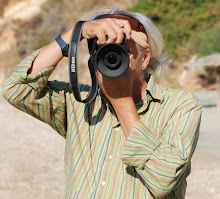Please read the three following headlines with attention to detail:
Professor David Nutt, the Government's chief drug adviser, was sacked today after claiming ecstasy and LSD were less dangerous than alcohol . . .
The Independent, Oct. 30, 2009
Professor asked to resign after he renews criticism of decision to toughen law on cannabis . . .
The Guardian, Oct. 30, 2009
The UK's chief drug adviser Professor David Nutt is sacked after criticising government policies on cannabis.
BBC, Oct. 30, 2009
That’s the Color of Language ... and that’s exactly the stuff I like – it’s so much better than cross-word puzzles, and it even has some sort of connection with reality. Naturally, you only notice it if and when you read all of them in short succession, or if you’re an especially attentive reader, or if you’re a wordsmith yourself.
I have no beef with any of these news-outlets . . . . I’m not exactly sure who is left or right or in the dreadful middle - I just read them, watch them. I’m not English, but I prefer (slightly) European news to CNN or the Huffington Post; just as I prefer Harpers to The Daily Beast and U2 to You2b.
If you really read the three articles (links below), you’ll find the words “claims” or “claiming” in all of them at some point, but it should be clear the truly independent Independent comes across as the least independent of all.
Anyway, after digesting the story (as far as I can know it), I like the BBC version best, although the Guardian sounds better … and it’s also is more essentially English. In the Netherlands (where I lived most of my life), a Dutch paper would perhaps have written “Prominent Scientist Sacked for Critical View of Government Policies”, and a German tabloid could have screamed “Government Finally Sacks Nutty Pro-Drug Professor.”
That’s what I mean with the Color of Language – and that’s how media and politicians usually try to manipulate the minds of their readers, viewers, and constituents. Unfortunately, they often succeed, distorting reality by manipulating language - the oldest trick in the world.
In fact, “He Who Sacked” should be obliged to bow (Japanese style) do to “Him Who Was Sacked.” He, Home Secretary Alan Johnson, should bend at his waist and beg Professor David Nutt for forgiveness. Because, as everyone knows – even without being a scientist – nicotine (cigarettes, cigars, pipes, snuff) is far more difficult to give up than dope (Cannabis, Marihuana, Skunk, THC). Apart form that, most Baby-Boomers will know that a single helping of LSD may have you encounter the Goddess of Love, whereas the equivalent litre of Gin Tonic or Vodka-Cola will have you wake up with the feeling “WHAT TE FU*K.”
Going back to science, this subjective feeling of the experienced user is fully vindicated by Professor Nutt. He may have his name work against him, but his research only confirms what many of us know from first-hand experience.
According to the scientist, gathering what can be gleaned from the three articles linked below, the Harm-Index of popular drugs looks like this:
1. Cocaine
2. Heroin
3. Barbiturates
4. Methadone
5. Alcohol
6-8 not mentioned (probably morphine, opium)
9. Nicotine
10. THC (Cannabis, Marihuana)
11. LSD
12. XTC (Ecstasy)
At present, however, the classification of drugs does not at all reflect the harm they represent, and is as follows (in the UK), though marijuana has recently moved from C to B … which is part of why this row between politicians and scientific advisors is unfolding.
Class A (most harmful)
Heroin, morphine, methadone, cocaine, opium, XTC, LSD
Class B (harmful though less potent than A)
codeine, amphetamines and barbiturates
Class C (low risk)
marijuana (now upgraded to B), tranquilizers, less potent stimulants and mild analgesics
Numbers 5 and 9, you will notice, are not at all classed as drugs. By not speaking of alcohol as a drug, the use of language can again be seen as misleading.. It isn’t hard to guess that there’s a fiscal reason to keeping the sale of alcohol and tobacco legally going – since the tax revenue coming from these addictions is badly needed – not even to mention the profits by the companies selling these substances. When someone speaks about “drug policy”, these two are never even discussed.
And if the Chairman of the Advisory Council on the Misuse of Drugs says that smoking cannabis creates only a relatively small risk of psychotic illness, and that taking ecstasy is no more dangerous than riding a horse, he knows what he’s talking about. After all, it’s not as if he’s an Afghan drug-lord or the brother of Keith Richards … he’s the previously respected and carefully chosen chairman of the council.
Last not least, it comes as no surprise when Prof. Nutt states in his BBC interview, that the ‘row’ between scientists and politicians began the moment that England got saddled with the great man who knows all and everything: Gordon Brown.
TV interview with Prof. Nutt is here:
 In Copenhagen, the so-called leaders of the World (193 countries were represented) have shown once more the simple truth in an old song. I've been unable to find out who wrote this, but it has been performed by Van Morrison, Elvis Costello, Vaya Con Dios and others. The refrain in question is
In Copenhagen, the so-called leaders of the World (193 countries were represented) have shown once more the simple truth in an old song. I've been unable to find out who wrote this, but it has been performed by Van Morrison, Elvis Costello, Vaya Con Dios and others. The refrain in question is 

























